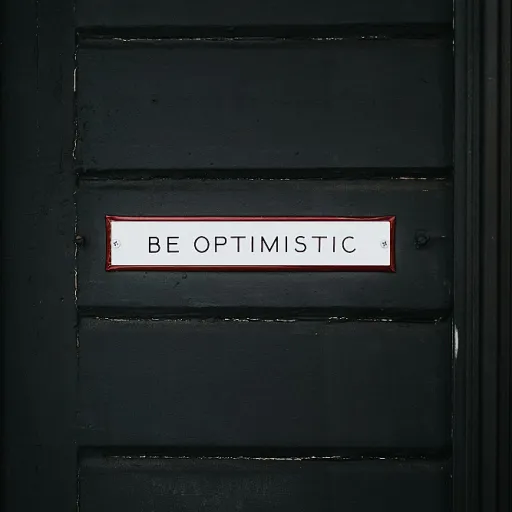
Understanding the role of a talent management agency talent assistant
Behind the Scenes: The Talent Assistant’s Evolving Role
Recruitment process outsourcing (RPO) has become a strategic solution for organizations seeking to streamline their hiring. At the heart of this transformation is the talent management agency talent assistant. Whether in bustling hubs like Los Angeles, New York, or Beverly Hills, these professionals are more than just support staff—they are the backbone of modern recruitment operations.
Talent assistants in agencies such as CAA, United Talent, and WME play a crucial role in connecting candidates with the right job opportunities. Their day-to-day responsibilities go far beyond scheduling interviews or managing calendars. They are often the first point of contact for job seekers, handling everything from initial screening to coordinating with talent managers, directors, and agents. In cities like Los Angeles, where the entertainment and music industries thrive, the demand for skilled assistant talent is especially high.
- Job Coordination: Talent assistants manage full time and part time job postings, ensuring that roles are accurately described and reach the right audience.
- Candidate Experience: They guide applicants through the process, providing updates and feedback, which is essential for maintaining a positive employer brand.
- Agency Operations: From supporting central assistant teams to liaising with music central departments, their work keeps the agency running smoothly.
In a competitive market, agencies in Los Angeles and beyond rely on their assistants to keep pace with the fast-moving world of talent acquisition. Whether it’s a director seeking a new agent assistant or a music manager looking for the next big star, the talent assistant is the connector. Their expertise ensures that every job, from assistant jobs to senior talent agent roles, is filled efficiently and professionally.
For a deeper look at how technology and human expertise combine to transform recruitment process outsourcing, explore this insightful overview of SkillMatch Pro’s impact on RPO.
Key benefits for organizations using talent assistants
Unlocking Efficiency and Value with Talent Assistants
Organizations that partner with a talent management agency and leverage a talent assistant quickly notice the difference in their recruitment process outsourcing. The assistant role is not just about administrative support; it’s about streamlining the entire journey for both candidates and hiring teams. Whether you’re in Los Angeles, New York, or Beverly Hills, the impact is felt across locations and industries, from music to entertainment to corporate roles.
- Time Savings: Talent assistants handle scheduling, communication, and initial screening, freeing up recruiters and managers to focus on strategic decisions. This is especially valuable for high-volume hiring in cities like Los Angeles, where assistant jobs and full time roles are in constant demand.
- Improved Candidate Experience: With a dedicated assistant, candidates receive timely updates and clear communication, which enhances the reputation of the agency and the employer brand. This is crucial for agencies like CAA, United Talent, and WME, where the candidate journey is a reflection of the agency’s professionalism.
- Consistency Across Roles: From agent assistant to talent manager, the assistant ensures that every job—whether it’s a director position or an entry-level assistant talent role—follows a standardized process. This reduces errors and ensures compliance, especially important for agencies managing jobs across multiple locations such as Los Angeles, New York, and Beverly Hills.
- Scalability: As organizations grow, the assistant role can adapt, supporting recruitment for both full time and part time jobs, and even specialized positions like music central or agency los roles. This flexibility is key for agencies handling diverse talent pools.
- Data-Driven Insights: Talent assistants often work with technology to track metrics and provide feedback to managers and directors. This data helps refine recruitment strategies and measure success, supporting continuous improvement in the recruitment process.
For companies looking to maximize efficiency and reduce costs, integrating a talent assistant into their recruitment process outsourcing strategy is a smart move. The assistant’s ability to manage multiple tasks, coordinate with agents, and support the central assistant team ensures that every job opening—whether at CAA Los Angeles, United Talent, or another agency—is handled with care and precision.
To see how process optimization can further enhance recruitment outcomes, explore this resource on transforming the accounts payable process for efficiency. The principles of efficiency and streamlined workflows apply just as much to recruitment as they do to finance, highlighting the value of a well-integrated assistant in any agency setting.
Challenges faced in recruitment process outsourcing
Common Obstacles in Outsourced Recruitment
Recruitment process outsourcing (RPO) offers organizations access to specialized talent management, but it is not without its challenges. Even with the support of a talent assistant or a full-time agent assistant, companies face hurdles that can impact the effectiveness of their hiring strategies.
- Alignment with Company Culture: One of the main difficulties is ensuring that external agency teams, such as those in los angeles or beverly hills, fully understand and represent the client’s culture and values. This is crucial for roles like talent manager, director, or music central assistant, where cultural fit is as important as skills.
- Communication Barriers: When working with agencies like united talent or caa los, clear communication between internal HR and external recruitment teams is essential. Misunderstandings can lead to delays or mismatches in job placements, especially for assistant jobs or time job positions.
- Consistency in Candidate Experience: Maintaining a seamless candidate journey can be tough when multiple stakeholders are involved. Candidates applying for assistant talent or agent assistant roles may receive inconsistent messaging if the process is not tightly managed.
- Technology Integration: Leveraging recruitment technology is key, but integrating agency systems with internal platforms can be complex. This is especially true for large agencies in cities like los angeles or new york, where multiple tools are used for different jobs and functions.
- Compliance and Legal Risks: Navigating employment laws across regions, such as united states or specific states like california, requires expertise. Agencies must stay updated to avoid compliance issues, particularly when hiring for full time or central assistant positions.
Clarifying the Distinction: RPO vs. Staffing Agencies
Another challenge is understanding the difference between recruitment process outsourcing and traditional staffing agencies. Many organizations confuse the two, which can lead to misaligned expectations and suboptimal results. For a detailed breakdown, see this comparison of employer of record vs. staffing agency.
Despite these obstacles, with the right talent assistant or agent, organizations can navigate the complexities of RPO and achieve their hiring goals. The key is to foster strong collaboration, leverage technology wisely, and maintain a clear understanding of each partner’s role in the recruitment process.
How talent assistants enhance candidate experience
Personalized Support Throughout the Recruitment Journey
When organizations partner with a talent management agency, the role of a talent assistant becomes crucial in shaping the candidate experience. These assistants act as the bridge between candidates and the agency, ensuring that every step of the recruitment process is smooth and transparent. Whether it’s for a full time job in Los Angeles, a music central position in New York, or an agent assistant role at a major agency in Beverly Hills, candidates benefit from having a dedicated point of contact who understands the nuances of the industry.
Clear Communication and Timely Feedback
One of the most significant ways talent assistants enhance the candidate journey is through consistent communication. From the initial job application to final interviews, candidates are kept informed about their status. This is especially important for those applying for assistant jobs at agencies like CAA Los Angeles or United Talent. Timely feedback helps candidates feel valued and reduces the uncertainty that often comes with job searches in competitive markets like Los Angeles or New York.
Streamlining the Application Process
Talent assistants leverage both technology and their industry expertise to simplify the application process. They help candidates navigate job listings, clarify job descriptions, and prepare for interviews. For example, a candidate seeking a director or manager position at a talent agency will receive tailored guidance, making the process less overwhelming and more efficient. This hands-on support is especially valuable for those pursuing roles such as agent assistant, talent manager, or music central assistant.
Building Trust and Long-Term Relationships
By offering personalized attention, talent assistants foster trust and build long-term relationships with candidates. This approach is not limited to one-off placements; it extends to ongoing career development. Candidates who have worked with a talent assistant at an agency in Los Angeles or New York often return for future opportunities, confident in the agency’s commitment to their professional growth.
- Personalized guidance for each job seeker, from assistant caa roles to senior management positions
- Support for candidates applying to agencies like CAA, WME, and Endeavor
- Expertise in navigating the unique demands of the entertainment and music industries
Ultimately, the presence of a dedicated talent assistant within a talent management agency transforms the recruitment process into a more human, supportive, and effective experience for job seekers across roles and locations.
Integrating technology with human expertise
Blending Digital Tools with Human Insight
Recruitment process outsourcing (RPO) is evolving rapidly, especially in dynamic markets like Los Angeles and New York. Today, agencies and talent assistants are not just relying on traditional methods. They are integrating advanced technology with human expertise to create a seamless experience for both clients and candidates. This blend is particularly visible in roles such as talent assistant, agent assistant, and central assistant, where digital platforms support but do not replace the human touch.
How Technology Supports Talent Assistants
- Automated Screening: Tools powered by artificial intelligence help talent assistants quickly sift through hundreds of assistant jobs, full time job postings, and candidate profiles. This allows them to focus on high-potential applicants for roles like talent manager or agent assistant.
- Data-Driven Decisions: Platforms used by agencies in cities like Beverly Hills and Los Angeles provide analytics on job trends, candidate engagement, and placement success. This data helps talent assistants and managers make informed decisions, especially for specialized roles in music, entertainment, or executive recruitment.
- Enhanced Communication: Technology enables real-time updates and communication between candidates, agents, and managers. Whether it’s a job at a major agency like CAA Los Angeles or a music central assistant position, candidates receive timely feedback and support throughout the process.
Why Human Expertise Still Matters
Despite these advancements, the role of the human assistant remains crucial. Technology can automate tasks, but it cannot replace the nuanced understanding of culture fit, motivation, and long-term potential that experienced talent agents and managers bring. For example, a talent assistant at a united talent agency or a director overseeing recruitment in Los Angeles will use both digital insights and personal judgment to match candidates with the right jobs.
Examples from Leading Agencies
Agencies like CAA, WME, and Endeavor have adopted hybrid approaches. Their assistants and managers use digital platforms to manage applications, schedule interviews, and track candidate progress. However, final decisions and candidate engagement are still handled by experienced professionals. This ensures that every job, whether it’s an assistant caa role or a director position, is filled with the right talent.
Ultimately, the integration of technology and human expertise in recruitment process outsourcing helps agencies deliver better results for both organizations and candidates. It’s a model that continues to evolve, driven by the need for efficiency, personalization, and trust in the recruitment journey.
Measuring success in recruitment process outsourcing
Key Metrics for Evaluating Recruitment Process Outsourcing
When organizations partner with a talent management agency or deploy a talent assistant, measuring success becomes essential. The recruitment process outsourcing (RPO) landscape is competitive, especially in cities like Los Angeles and New York, where the demand for assistant jobs, talent managers, and agent assistants is high. To ensure that the agency or assistant is delivering value, companies need to focus on clear, actionable metrics.
- Time to Fill: How quickly are jobs being filled? In fast-paced markets such as beverly hills or for roles like music central agent assistant, reducing the time to hire is a strong indicator of efficiency.
- Quality of Hire: Are the new hires meeting performance expectations? Feedback from directors, managers, and team leads helps assess if the talent sourced by the agency or assistant is a good fit for the company’s culture and objectives.
- Candidate Experience: Talent assistants play a crucial role in candidate engagement. Positive feedback from candidates, especially for full time jobs or central assistant roles, reflects well on the agency’s reputation.
- Cost per Hire: Monitoring the total cost involved in filling a position, including agency fees and technology investments, is vital for budget-conscious organizations in cities like los angeles or york.
- Retention Rates: High retention, especially for specialized roles like talent agent or assistant caa, signals that the recruitment process is aligned with long-term organizational goals.
Continuous Improvement Through Data and Feedback
Success in RPO is not just about filling jobs quickly. It’s about building a sustainable pipeline of talent for roles ranging from united talent manager to agent assistant. Agencies and talent assistants in los angeles and beyond rely on regular reporting, candidate surveys, and hiring manager feedback to refine their processes. This data-driven approach helps identify areas for improvement, whether it’s enhancing the onboarding experience or leveraging new technology to support the assistant talent workflow.
For organizations, working with a reputable agency or a central assistant means having access to transparent reporting and actionable insights. This partnership ensures that recruitment strategies remain agile and responsive to market changes, whether the need is for a full time job in music or a director position in united talent agency.













